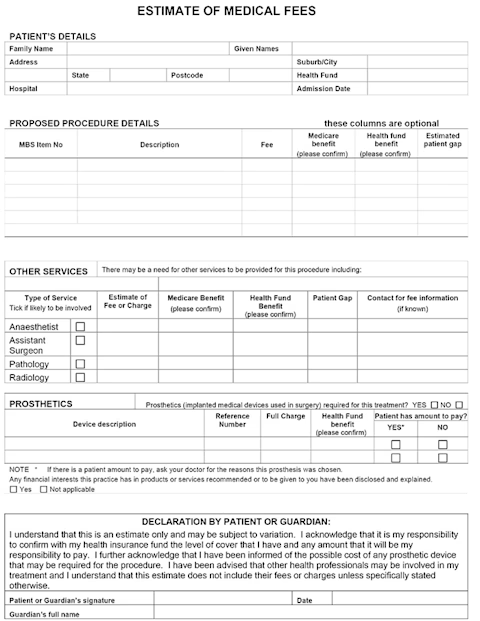Before your treatment or admission to hospital, your specialist should provide a written breakdown of expected costs for your procedure and identify if there'll be any out of pocket expenses. This is called an informed financial consent or written estimate of fees.
Make sure to ask for informed financial consent
Before receiving treatment you're entitled to know who will be treating you and how much each doctor or specialist will charge - there's often more than one. If you're an Australian resident, log in to use our online tool to check the average costs involved for your procedure.
Once you have the cost information, you can review your potential out of pocket expenses and decide with your specialist if you need to make any changes to your proposed treatment plan. Our questions in Choosing a specialist can help you start this conversation. You can also contact us about getting the best value from your nib cover.
An informed financial consent or written estimate of fees should include:
Details of the proposed procedure including hospital, admission date, procedure details such as MBS items with a description and fee for each
Other services or specialists such as anaesthetist, assistant surgeon, pathologist or radiologist and their fee estimate
Prosthetics that may be required and their fee, plus the health fund benefit
Patient or guardian signature and date
Not all specialists will provide this, so be sure to ask for it.
Sometimes anaesthetist fees aren’t reflected on your informed financial consent. You can usually talk to your specialist for an idea of the costs involved.
Costs aren't the only thing to lock in; you should talk to your specialist to make sure you feel comfortable with your treatment. See our list of questions to ask your specialist.
What happens if I'm in an emergency?
If you're in an emergency situation sometimes it isn't possible to get an estimate of fees before you're treated. You're entitled to find out about your medical costs as soon as possible after receiving treatment. If for any reason you can’t be provided with the information personally, your relatives or next of kin can act on your behalf. For more information see our what to do in an emergency page.



